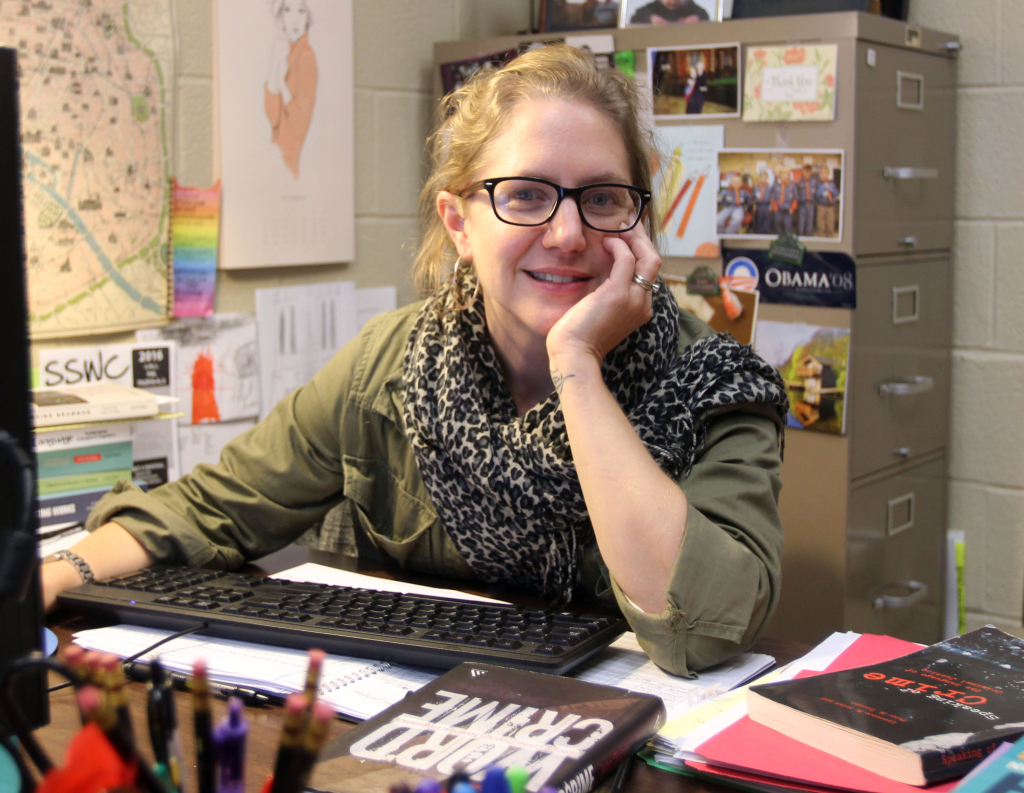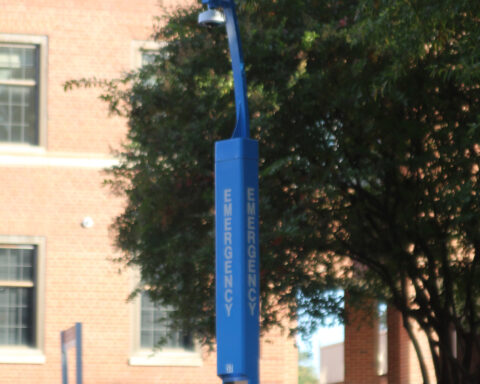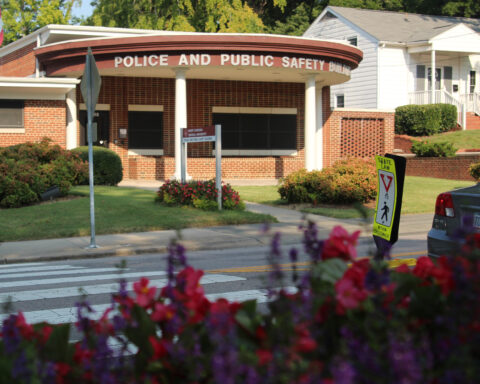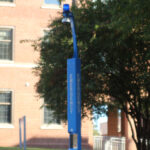Step into Stefanie Frigo’s forensic linguistics course (ENG 3030) and you might find yourself reading a sentence like this: “Drop off $1 million in the trash can at the corner of Avenue A and Elm Street … or you will never see your daughter again.”
Ransom notes like this, along with suicide notes and death row testimonies, are standard fare in Frigo’s class. And despite what you might think, forensic linguistics isn’t about weird grammar rules or a mysterious foreign language.
Forensic linguistics refers to the language used in law and the detection of crime, or forensics. When a crime is committed, a specialist is called in to look at documents related to threats, extortion, confessions, bribery, plagiarism and disputed suicide. He or she may examine the way questions are worded in a lie detector test.
Students in Frigo’s class might investigate questionable suicide letters. Does the handwriting match that of the deceased? Are these the kinds of words the deceased would use? If not, the letter may represent a murder, not a suicide.
One document Frigo’s students have examined is the ransom note written in the 1996 JonBenet Ramsey case. Six-year-old JonBenet, a frequent child beauty pageant participant, was found strangled in the family home; her parents were suspected of the crime. It wasn’t until 2003 that her parents were fully cleared.
“I’ve always been interested in crime,” said Frigo. “Crime novels, unsolved cases, the mysteries of life … forensic linguistics is where that intersects.”
Frigo, an assistant professor in the department of language and literature, is British and moved to the United States from The United Kingdom in 2006.
Frigo, who holds a doctorate in linguistics from Queens University in Northern Ireland, wrote her Ph.D. dissertation on emotion and speech. She said she was especially focused on “the vocal activity other than words,” or the silences and pauses that occur in human speech. She compared silences and pauses in the way people talk about real events naturally to how they occur when actors perform in films.
Forensic linguistics is offered each spring at N.C. Central University. Frigo said students enjoy this unique approach to linguistics and its application to the real world, adding that her course applies across the disciplines and can be taken as an elective. She said she provides short lectures followed by discussion and workshops. Students often work in groups to examine documents related to forensic issues.

















